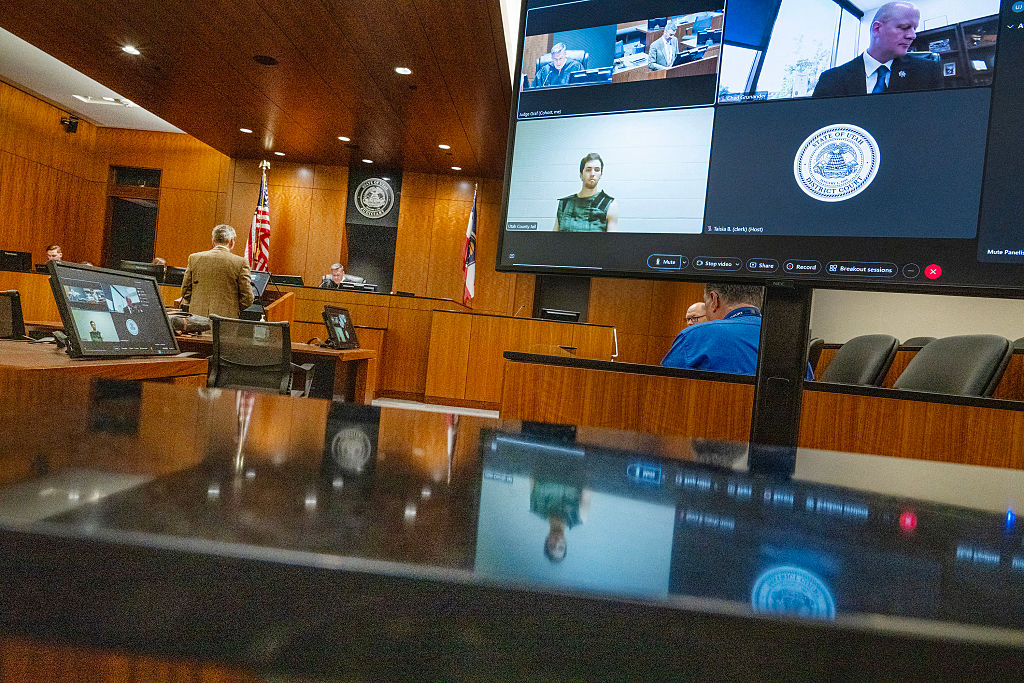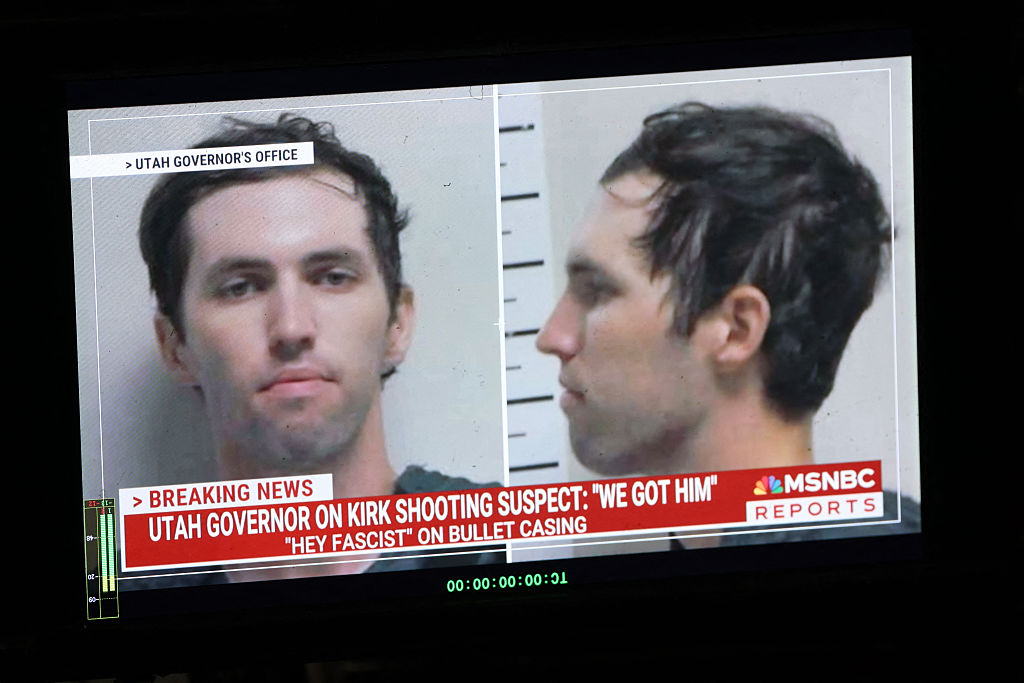Anti-fascism isn’t a game. You can’t preen yourself and say you oppose dictatorship and the power of the mob, then give into mobs and arbitrarily slander innocent people. You can’t say you believe in justice, and then condone injustice. And, this should be basic, you can’t say you support freedom of speech and the right to dissent, and then censor for that most mulish and cowardly of reasons that free speech allows controversy. It’s meant to be controversial. There’s no point in having it if it isn’t.
To Ubisoft, anti-fascism is a game: a computer game to be precise. The latest plaything from the gaming corporation is Watch Dogs: Legion. In a ‘near-future London,’ a private security company called Albion has used the fallout from terrorist attacks to establish a dictatorship. The players must recruit resistance fighters and strike back. ‘Everyone you see has a unique backstory, personality and skill set,’ the makers explain. With them, you can ‘hack armed drones, deploy spider-bots, and take down enemies using an Augmented Reality Cloak’.
Even if you like that sort of thing, Watch Dogs: Legion would be a standard blood-and-guns game, wrapped in the standard paranoid plotline that long ago lost the power to shock or even surprise. It does have one original feature, however, that lifts it above the mediocre. Ubisoft allows players to tune into resistance podcasts and hear real journalists talking about how fascism returned to Britain. Ubisoft recruited Ian Dunt of Politics.co.uk and Helen Lewis of the Atlantic. They do a decent job of weaving contemporary concerns about populism and tech giants into the dystopian story. I will quote what Helen Lewis says in full for reasons we will get to:
‘I think in pre-crisis Britain, we had an idea that when fascism came, it would look again like the 1930s. It would look like a single charismatic leader. It would look like jackboots in the street and huge flags. And it didn’t look like that: it looked like social media groups. It looked like poisoning the well so that no information could be trusted.’
To make it better, you can listen to Helen here. I would urge you to do so because it will be the last chance you get.
I am sure you can guess what happened next.
Lewis is, in my view, one of the most interesting liberal journalists in the country. She is independent and, in her own way, fearless. I speak from experience when I say many leftish writers run a mile from the poisonous arguments about trans rights. They either mouth the approved position that the debate is settled or say nothing. It’s asking for trouble to do anything else.
In recent years, Lewis took issue with a classic establishment stitch-up. She criticized Maria Miller, then chair of the women and equalities select committee, for agreeing with an extreme trans position while dismissing women’s concerns. Miller called on the government to allow men to self-identify as women. They would just have to say they were a woman to become women. The government was eventually forced to retreat under pressure from feminists, Lewis included, and the Howard League for Penal Reform, which feared sex offenders would use self-identification as an excuse to get into women’s prisons, rightly as events were to prove.
To oppose self-identification was not to deny that transgender people needed help and support, and had the same right to respect and equal treatment as everyone else. It was merely to protect women against toxic men. For this, Lewis was denounced as a bigot and a TERF (‘trans-exclusionary radical feminist’) when if anything she was a male-exclusionary radical feminist trying to keep men out of women-only spaces.
Claques of professional scorners follow her, and shout ‘TERF’ whenever her name appears on Twitter. Sure enough, a handful of Twitter users and contributors to a gaming forum told Ubisoft it was outrageous to give her a platform. I don’t want to exaggerate their number. It was more a Twitter shower than a Twitter storm. But the shower was enough.
Nowhere in the game does Lewis talk about trans issues. But the brave anti-fascists of Ubisoft didn’t care. The company said it had become ‘aware of controversial remarks’ Lewis had made. As it did not specify what they were, Ubisoft was not only condemning Lewis without a trial but without letting her know the charges against her. The worst her accusers on Twitter could find was an article in which she said that ancient hatred of women was clothed in the modern use of ‘TERF’ as an insult, just as ancient hatred of Jews was clothed in the modern use of ‘Zionist’. I sympathize. I’m called Cohen, and have seen enough anti-Semites swap ‘Jews’ and ‘Zionists’ to last me a lifetime and enough left-wing men get an all-too-familiar pleasure when they abuse feminist women. I accept I could be wrong, but if you think I am, I’d be grateful if you could explain why the comparison is false and Lewis is mistaken. No one on Twitter or at Ubisoft bothered. Facts and evidence weren’t required. As Lewis predicted in Watch Dogs: Legion, social media had so poisoned the well ‘no information could be trusted’ or indeed needed.
Perhaps it was sufficient for the company that she was ‘controversial’.
[special_offer]
Ubisoft duly apologized to one and all for letting controversy through its doors, and announced it was purging Lewis’s contributions from the game. We will ‘reinforce our background checks’ in future, it added ominously.
Ubisoft’s behavior is simultaneously hypocritical, pathetic and dangerous. It cannot promote a game urging resistance to tyranny and then collapse into a trembling heap. Lewis is hardly alone. I receive emails from artists and writers who have paid the price for speaking out of turn. They have had commissions withdrawn and appearances cancelled simply because, like Lewis, they are ‘controversial’.
Cancel culture’s defenders pretend they only go after powerful targets. It is simply not true. Grudges are settled and hysterical accusations given unwarranted credence because cowards in authority crumble at the first hint of controversy. All that is needed to destroy someone is a few tweets denouncing them. As Lewis found, no one checks, no one justifies, too few care, and too many run.
This article was originally published on The Spectator’s UK website.

























